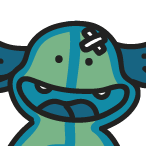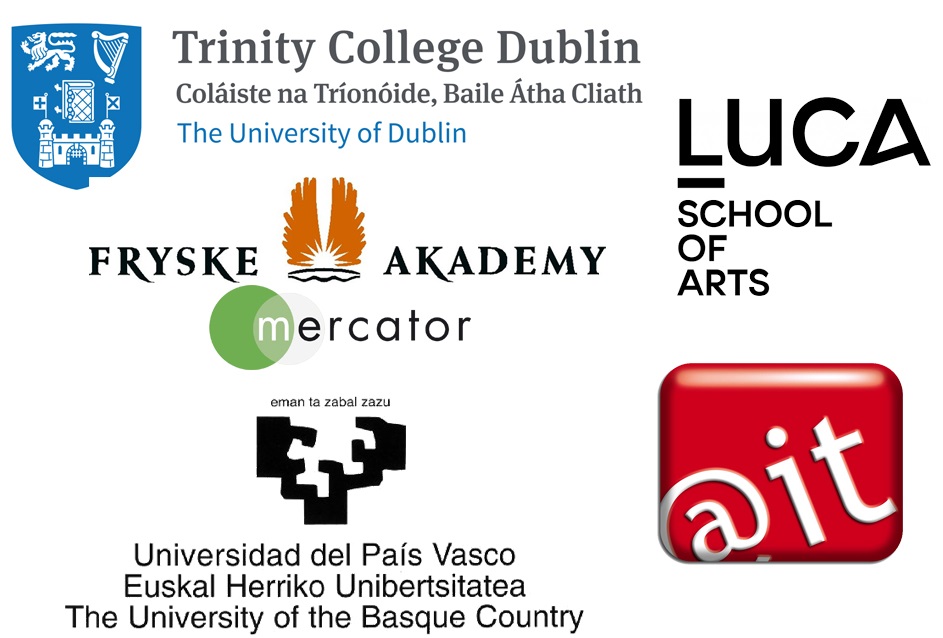November 2021-December 2021
The final event was held face-to-fac in Ljouwert/Leeuwarden. During the event, speakers shared their experiences with multilingual projects, and we presented the projects results: the teacher toolkit with the Frequently Asked Questions (FAQ), Didactical Videos, and Experts as well as the quiz with Babel and the multiplayer, multilingual Augmented realuty game BabelAR.
What is more, we are thrilled as VirtulApp, with BabelAR, has won two prizes. First, BabelAR has won in the category of Digital Product in the Belgian design awards, The Henry van de Velde Award 2021. The ranking will be announced in February 2022. What is more, VirtuLApp won the second prize of the NUFFIC Europees Talenlabel 2021 (European Language Label) in the Netherlands.
August 2021 – October 2021
After summer, we kicked off the new school year with the webinar “Welcome back to the Multilingual Classroom”, which you can (re-)watch here. Also, BabelAR got a new update available in the store. More answers to Frequently Asked Questions (FAQ) published (available in seven languages) were posted. As well as more Didactical Videos to share best practices accross Europe.
April 2021 – July 2021
In May, the multiplier event New technologies, minority languages and linguistic diversity was held online. You can (re-)watch it here. We also had good news with two nominations for awards! The research on BabelAR by interns Engelina Smeins and Kirsten Wildenburg was nominated for the LC Awards and BabelAR the game was nominated in the Belgian Game Awards 2021, in the category Best Non-Entertainment Title of the Year. What is more, Belgian children could learn about BabelAR in the news programme Karrewiet (Ketnet, VRT).
January 2021 – March 2021
We started the year 2021 well and with many people with the event Multilingual Classrooms in the first week of January. Since then, we have tested and developed the game BabelAR further, and worked on new didactical videos and FAQs. In March, we’re excited to launch the multiplayer and multilingual game BabelAR for the public, and welcome everyone to play the game and join the #BabelARchallenge.
The next multiplier event will be held online on May 12.
June 2020 – December 2020
Since the outbreak of COVID-19, we’ve been working on the project online and from home. Because everything is online, we can share results and outputs of the VirtuLApp project with people accross the globe. We’ve organised the #Erasmusdays webinar on the 15tth of October and our second multiplier event Multilingual Primary Schools on November 13. In the meantime, we’ve expanded the toolkit and you can find more FAQ and didactical video’s, and we’ve been developing the game BabelAR further.
The next multiplier event, Multilingual Classrooms, will be online as well, and will be held on January 7.
March 2020 – May 2020
And then Corona hit…. which meant that we had to postpone our Dublin workshop to later on this year which was a real disappointment for everyone involved. However we did manage to record video material in two Dublin schools just before the lock-down for our didactical video series which we plan to publish in June. We have also managed to be busy despite the lock-down on building the game and on editing the video recordings that are part of the FAQ section. We hope to have everything ready for testing in the new school year starting in September. We will also send out our next newsletter in June and are hoping to have a chance to meet face-to-face at our next workshop which will hopefully take place in November 2020 in Leuven, Belgium.
December 2019 – February 2020
Work continued over the past 3 months on all of the project’s outputs and we also sent out our first newsletter. By the end of February our game is almost ready for testing and we have been making lots of progress with the toolkit, building up the list of questions that will be part of our Frequently Asked Questions section and identifying the experts who will provide input. We have also been busy planning our next workshop which will take place in Trinity College Dublin on 3 April. This workshop will serve as a multiplier event and will include practical sessions and interesting talks by experts in the field of multilingualism and is aimed at teachers, teacher trainers, researchers and anyone else keen to enhance their skills in the area of multilingual teaching. We will also organise next project partners meeting at the same time in Dublin.
September 2019 – November 2019
VirtuLApp is now a year old and the partners met in October to review progress and plan for the coming months. October was also the month when we organised our first multiplier event in Ghent, Belgium hosted by Luca School of Arts. This was a workshop which featured both the first drafts of several project outputs as well as short taster type workshops on all sorts of related topics, from creating your own AR and video resources to running multilingual activities in the class. Quite a few interested people took part from Belgium and abroad and we will build our community of project interest based on those who took part. We also went live with our quiz which is now open to everyone on the front page of this site as well as publishing our first video.
June 2019 – August 2019
Over the summer months, the teams working on the quiz, the game and the videos have all continued to develop their outputs which are really starting to take shape. Multilingual versions of the quiz were worked on in order to ensure it would be ready in September. We also expanded the FAQs we are working on with the input of several teachers and other people interested in multilingual teaching in primary schools. In June we also had one of our first dissemination opportunities when VirtuLApp was presented during a poster session at the 40th International Linguistics Conference organised by the University of Groningen (The Netherlands).
March 2019 – May 2019
It’s been a busy couple of months for the VirtuLApp consortium as many of our outputs start to take shape. The team in Luca School of Arts have moved forward quite considerably with our game and the several different story lines were considered by the project team as a whole. Our final decision is a mix of 3 previously discussed concepts based on the story of the Babas – more will be revealed soon! The stakeholder analysis is quite far advanced and we now have a list of about 20 questions to be included in the FAQ. So too is the quiz which will be finalised after the summer and made ready for translation. The first video recording has been edited and plans for the next recording to be made in Belgium are underway based on the experiences of our first recording in Joure. We have also agreed to organise our first multiplier event on 17-18 October when we will be presenting the quiz and a pilot version of the game.
December 2018 – February 2019
The first draft of our quiz was circulated in December and we spent the initial part of this period also getting our communication channels in order including our online meetings. By January the first steps in game development were underway aided by the enthusiastic input of students in LUCA school of Arts. Schools in the Netherlands where we can record video for the video component of the project were also identified in February and we plan to make our first recordings in March. Both the project dissemination and quality control plans were finalised in this period and we also managed to work on our first progress report by the end of February.
September 2018 – November 2018
September 2018 was when we formally launched the VirtuLApp project with our enthusiastic group of partners and spent the first couple of weeks sharing project information along with administrative guidelines from the European Commission. Our first project meeting to plan the project took place in Leeuwarden, the Netherlands on 15 – 16 October 2018 and was hosted by the project leader, Mercator European Research Centre. All partners were represented at the meeting and we spent a busy two days working on our plans. We used the time after the meeting to share resources and materials that could be useful as well as launching the work for the project dissemination and quality control plans.



